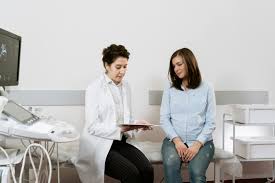First-time gynecology appointments can feel uncertain, especially if you’re unsure what will happen. While experiences may vary, most gynecological visits follow a general structure, including a discussion of medical history, a physical examination, and an opportunity to address questions or concerns.
Here is more information on what typically occurs during a consultation to help you feel more informed and prepared:
Discussing Medical Concerns
A gynecology appointment usually begins with a conversation about your medical history. This serves as a foundation for understanding your overall health and any factors relevant to gynecological care. You may be asked about topics such as menstrual history, sexual activity, past medical conditions, surgeries, allergies, and family health history. This information helps the healthcare provider identify any patterns or risk factors.
Patients are typically encouraged to discuss symptoms, concerns, or questions they have about their reproductive health. Open communication is key during this part of the consultation. Feel free to raise topics such as irregular periods, contraception options, or any discomfort you’ve experienced.
This discussion sets the tone for the rest of the visit and allows the provider to tailor their care to your needs. They may also ask about lifestyle factors such as diet, exercise, and stress levels, which can impact reproductive health.
Getting a Physical Exam
The physical examination follows the discussion of medical history. It typically includes general health checks, such as measuring blood pressure and heart rate, and a focused gynecological exam. They may also perform a breast examination to check for lumps or irregularities.
The gynecological portion may include an external and internal examination. An external exam assesses the external genital area to be sure there are no visible concerns. An internal exam often involves the use of a speculum to allow the healthcare provider to observe the cervix and vaginal walls. While this may feel uncomfortable, it is generally not painful and is performed quickly.
For sexually active patients or those over a certain age, the appointment may include a Pap smear, depending on healthcare guidelines. This test examines cervical cells to check for abnormalities.
The provider might also perform a bimanual exam, where they use gloved hands to assess the size and shape of the uterus and ovaries. These procedures provide key information about reproductive health and help detect potential issues early.
Addressing Questions
After the examination, the provider typically reviews their findings with you. If tests like a Pap smear or additional lab work are conducted, they will explain how and when to expect the results. This is a good opportunity to ask any remaining questions or discuss topics not yet addressed.
Common subjects include period concerns, contraceptive options, fertility planning, or management of symptoms like pelvic pain. Open communication here makes sure you leave the appointment feeling informed and more comfortable about your care.
Depending on the outcome of the consultation, the provider may recommend follow-up visits or specific steps to support your health. They can also recommend a specialist if the need arises. These recommendations align with the findings discussed during the session and aim to provide comprehensive care.
Find a Gynecology Office
Understanding what to expect during a gynecology consultation can help make the experience more comfortable and productive. Expect a discussion about your medical history, a detailed physical examination, and plenty of time to ask questions.
These appointments form the foundation of maintaining reproductive health and allow you to develop a relationship with your healthcare provider.
Recommended Articles









Leave a Reply